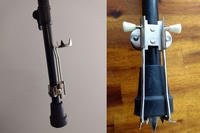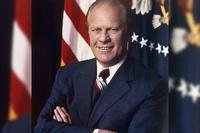The female candidate was asked, "Do you plan to have children?" She was taken aback by the question and wasn't sure how to answer.
She figured she had three choices:
- To answer the question honestly, even though she did not want to.
- To tell the interviewer it is none of their business and that making hiring decisions based on the answer to that question is illegal.
- To deal with the concern behind the question, ignoring the question itself.
How would you answer the question if you were the female candidate? The best answer is the third option.
An appropriate answer from the candidate might have been, "Whether or not I plan to have children in the future is not really relevant to my career. I plan to work and have a career, no matter what happens in my personal life."
Why is this type of question asked in an interview? Why are interviewers concerned about your plans to reproduce, your marital status and your retirement plans? It's simple: They want to make sure you are the solution to a problem, not the source of more headaches.
When the female candidate was asked her plans regarding future motherhood, the interviewer may have been trying to determine whether she was in for the long term or just until the company could pay for the birth of her firstborn. It is clearly a discriminatory question, one that would probably never be asked of a male candidate, and it is illegal to make hiring decisions based on it.
Technically, it is illegal for an interviewer to make hiring decisions based on anything personal that is not directly job-related. Off-limit questions include (but are not limited to): information regarding your age, marital status, country of origin, religion, sexual orientation and health status.
There are some exceptions to this rule, which might be confusing. Personal questions considered to be job-related usually are permissible in the interview or on the job application.
Legal Personal Questions
1. Have you ever been convicted of a crime?
Depending on the type of job you are applying for, this could be critical.
2. Can you show proof of your eligibility to work in the U.S.?
Every new employee, regardless of place of origin, must provide such documentation during the first days on the job.
3. Can you perform the job's essential functions with or without reasonable accommodation?
This question must be accompanied by a job description covering the essential functions.
The concerns behind these questions are relevant to the job's requirements and performance. As an example, if you have been convicted of embezzlement, you will probably not be considered for a job handling money. The concern is that you had a problem in your past that could be a problem again.
The interviewer wants to know whether you can report to work and do the job. Any information that could be enlightening is important, but the interviewer's questions should focus on the job and your qualifications to do it.
By becoming aware of questionable interview questions, you will be prepared to deal with them if confronted with them. Pre-interview thinking and preparation can spare you some embarrassing or uncomfortable moments during the interview.
Want to Know More About the Military?
Be sure to get the latest news about the U.S. military, as well as critical info about how to join and all the benefits of service. Subscribe to Military.com and receive customized updates delivered straight to your inbox.











